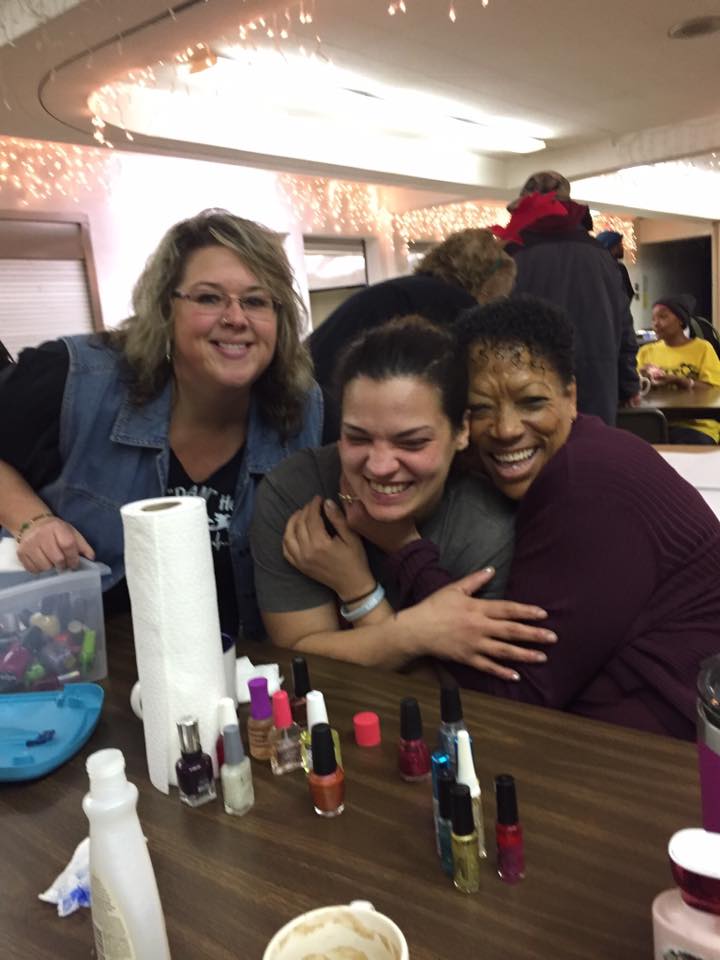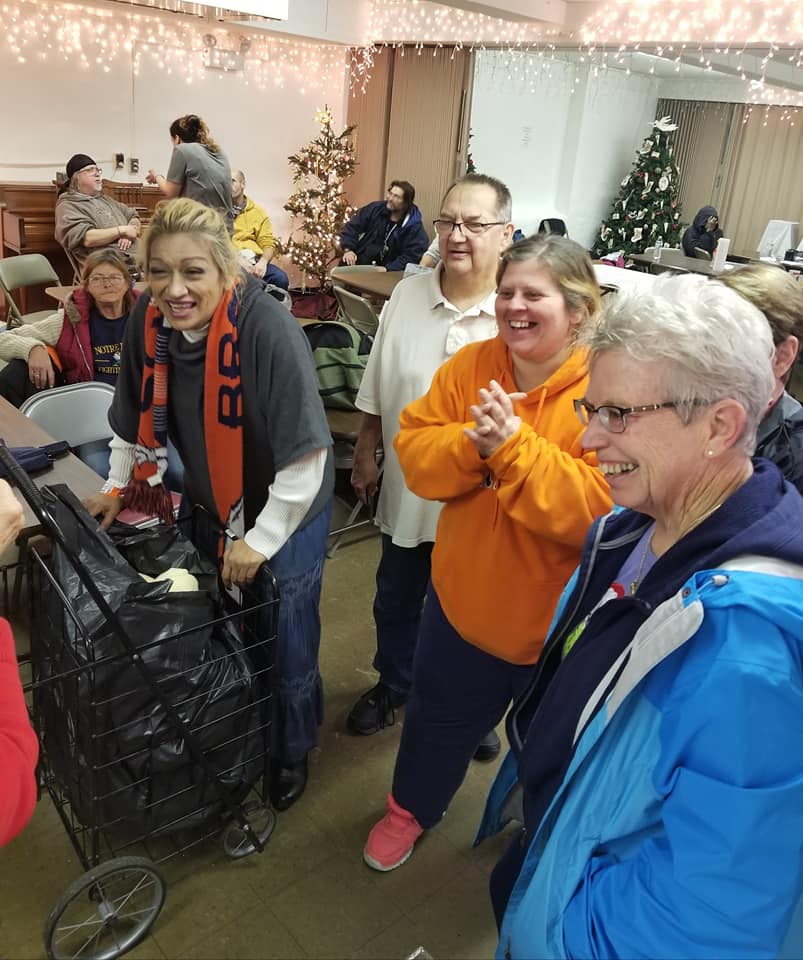Some of the most marginalized people in the city of Allentown, Pennsylvania, are finding a voice, and a sense of dignity, belonging and empowerment, at Ripple Community Inc. (RCI).
They may be experiencing homelessness, mental illness, trauma or drug and alcohol abuse issues. Anyone who shows up at Ripple is welcome to sign in, hang out, eat and make art. Ripple offers a safe, comfortable place for people who live on the fringes of urban society to spend the day in the company of others, serving about 50 people a day.
But what really creates the sense of humanity and community at Ripple is engaging people through restorative practices like circles. Every day, everyone shares their feelings and their story, builds relationships and sorts out issues and conflicts by means of a structured circle process.
"These are people not used to being listened to, not having a seat at the table,” comments Sherri Brokopp Binder, Ripple Executive Director. "To have this chance to speak is like a breath of fresh air.” Binder holds a Ph.D. in community psychology.
“We work with people, not for them, explains Missy Wise. "We walk their journey with them, allowing them to be self-directed.” Wise works part-time at Ripple and is a student service specialist at the IIRP, where is she is earning her Graduate Certificate in Restorative Practices. She points out that at Ripple , they never use the term "homeless person." They say "street neighbor" instead.
The impact of restorative practices with individuals and the Ripple community has been very positive. Wise shared a few stories.
"George" came to Ripple dealing with drug addiction and homelessness. At first, he couldn't bring himself to participate in circles. But he kept coming back and watching the process, and gradually he joined in. Little by little, George was able to reveal his feelings and experiences of homelessness and addiction. Now he's in recovery and no longer lives on the streets. He's a leader at Ripple and helps others struggling with addiction. He was especially proud to facilitate a circle with a group of youth volunteers who had never interacted with a homeless person before. The experience was humanizing for everyone.
A circle resolved the issue of drug use on the premises, Wise reports. At the time, Ripple was located in a church, and the drug use put the center in danger of losing their space. Instead of issuing an ultimatum, staff held a circle. Everyone discussed how the situation made them feel and offered solutions for holding each other accountable. Because participants owned the solution, the drug use decreased dramatically.
 Ripple has launched a housing program for people who are ready to move into affordable apartments, called RCI Village. But transitioning from homelessness can be difficult.
Ripple has launched a housing program for people who are ready to move into affordable apartments, called RCI Village. But transitioning from homelessness can be difficult.
"Sandy" had just moved into an apartment at RCI Village and was lonely and scared. She hadn’t slept in a bed in years. She was used to being on the street or in a "tent city," surrounded by other people. Staff helped Sandy explore her anxieties through nonjudgmental restorative questions. Following their suggestions, she started out sleeping on the floor, moved to the couch, and finally to her bed. Staff also supported Sandy with regular visits to check in on her.
Restorative practices has proven effective in education and justice settings. The experience at Ripple shows it can be equally valuable in the broader community, helping those who have lost their support systems cultivate connections across social boundaries.
Note: Ripple staff have been trained in the practices by the IIRP. Ripple grew out of Ripple Church, a "church of the streets," founded by IIRP graduate Tom Albright, who introduced restorative practices there several years ago.

